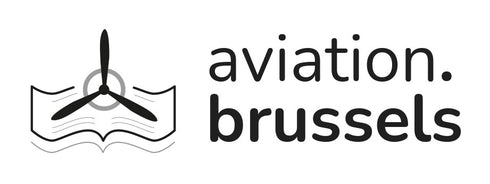On March 26th, 1931, Swissair - Schweizerische Luftverkehr AG was founded through the fusion of the airlines Ad Astra Aero ( founded in 1919 ) and Balair ( founded in 1925). The founding fathers were Balthasar " Balz " Zimmermann ( 1895 - 1937 ) and the Swiss aviation pioneer Walter Mittelholzer ( 1894 - 1937 ). In contrast to other airlines, it did not receive support from the government.
In the first operational year, 64 people were employed including ten pilots, seven radio operators, and eight mechanics. In total, their planes offered 85 seats and operation was maintained only from March to October. On April 17th, 1932, Swissair bought two Lockheed Orions. As the fastest commercial airplane of its time, the Orion was put to use on the " Express line ", Zürich ( Switzerland ) - Munich ( Bavaria, Germany ) - Vienna ( Austria ). In 1933, the first trans - Alpine route was introduced : Zurich - Milan ( Italy ). In 1936, Douglas DC - 2s were acquired and London ( England ) was added to the route network. In 1937, the bigger Douglas DC - 3 was bought. In the same year, both founding fathers died.
On August 27th, 1939, days before the Second World War broke out, the airspace over Germany and France was closed. Swissair was forced to suspend service to Amsterdam ( the Netherlands ), Paris ( France ), and London. Two days later, Swissair service was closed completely. In spite of the war, some routes were re - introduced, such as Munich, Berlin, Rome ( Italy ) and Barcelona ( Catalonia, Spain ). In 1940, an invasion of Switzerland was feared, and Swissair moved their operations to the Magadino plains in Ticino. Operations were suspended in August 1944, when a Swissair DC - 2 was destroyed in Stuttgart ( present - day Baden - Württemberg, Germany ) during an American bombing raid. On July 30th, 1945, Swissair was able to resume commercial aviation.
In 1947, the rise of shareholder capital to 20 million Swiss francs enabled long haul flights to New York ( United States ), South Africa, and South America with Douglas DC - 4s. The public, including the federal government, the states of Switzerland, municipalities, the Swiss Federal Railways, and the Swiss postal services took over 30.6 % of the shares and enabled Swissair to get a credit of 15 million Swiss Francs to purchase the airline's first two Douglas DC - 6B airliners for delivery in 1951. By that act, Swissair became the national flag carrier of Switzerland.
In 1957, the Far East was added to the route network. While competitors first looked at turboprop airplanes to replace their piston - engined aircraft, Swissair introduced jet airplanes. Together with SAS, Swissair bought Douglas DC - 8s, which were delivered beginning in 1960. For medium - and short - range routes, the Sud - Aviation SE 210 Caravelle was purchased. In 1971, the first Boeing 747 - 200 jumbo jet was acquired, and in the next year, the first McDonnell Douglas DC - 10 - 30 followed ( both types shaped the long - haul fleet until the 1990s ).
In 1973, the company struggled with severe turbulence : currency crisis, collective chaos, an air traffic controllers' strike, the October War and the first oil crisis were weathered without too much damage. With the beginning of deregulation and liberalisation, airlines felt growing financial pressure. In 1978, Moritz Suter ( former pilot, Swissair and Business Flyers Basel AG ) founded a regional airline named Crossair, which put Swissair under additional stress.
Regarding the furthering liberalisation of Europe's airline market, Swissair focused more on commercial aviation and extended its partnerships. As the first European airline, Swissair signed in 1989 a cooperation treaty with Delta Air Lines and Singapore Airlines to form the alliance " Global Excellence ". In 1990, together with SAS, Austrian Airlines and Finnair, the " European Quality Alliance " ( later renamed to " Qualiflyer " ) was founded. In the 1990s, Swissair initiated the disastrous " Hunter Strategy ", a major expansion programme devised by the consulting firm McKinsey & Co. Swissair and the SAirGroup were handed over to the liquidation firm of Jürg Hoss Liquidators and ceased operations on March 31st, 2002.
Crossair was renamed Swiss International Air Lines, or Swiss for short, and took over Swissair's intercontinental routes on April 1st, 2002, officially ending 71 years of Swissair Service.
( source : Wikipedia )
















